
Albina: The Gateway to Suriname's Untamed Beauty
Albina, nestled along the banks of the Marowijne River, serves as a picturesque entry point into Suriname's lush wilderness. This charming town, located in the eastern part of the country, offers a unique blend of cultural richness and natural beauty. Visitors are often enchanted by the scenic river views and the vibrant life that thrives along its shores. As a border town, Albina is a bustling hub of activity with a lively market where you can find a variety of local goods. It's the perfect place to immerse yourself in the daily life of Surinamese people, sample exotic fruits, and discover handmade crafts. The town also provides access to the Marowijne River, where you can enjoy boat tours that reveal the stunning landscapes and diverse wildlife of the region. Albina is not just a gateway to the natural wonders of Suriname, but also a place of historical significance. The town bears the marks of its colonial past and offers a glimpse into the complex history of the region. With friendly locals and a peaceful atmosphere, Albina makes for an ideal starting point for any adventure into Suriname's pristine rainforests and beyond.
Local tips in Albina
- Visit the local market early in the morning for the freshest produce and unique souvenirs.
- Take a boat tour on the Marowijne River to explore the rich biodiversity and scenic beauty.
- Bring insect repellent, especially if you plan to venture into the surrounding rainforests.
- Learn a few basic phrases in Dutch, the official language, to help with communication.
- Be mindful of the weather; the region can be quite humid and rainy, so pack accordingly.
Albina: The Gateway to Suriname's Untamed Beauty
Albina, nestled along the banks of the Marowijne River, serves as a picturesque entry point into Suriname's lush wilderness. This charming town, located in the eastern part of the country, offers a unique blend of cultural richness and natural beauty. Visitors are often enchanted by the scenic river views and the vibrant life that thrives along its shores. As a border town, Albina is a bustling hub of activity with a lively market where you can find a variety of local goods. It's the perfect place to immerse yourself in the daily life of Surinamese people, sample exotic fruits, and discover handmade crafts. The town also provides access to the Marowijne River, where you can enjoy boat tours that reveal the stunning landscapes and diverse wildlife of the region. Albina is not just a gateway to the natural wonders of Suriname, but also a place of historical significance. The town bears the marks of its colonial past and offers a glimpse into the complex history of the region. With friendly locals and a peaceful atmosphere, Albina makes for an ideal starting point for any adventure into Suriname's pristine rainforests and beyond.
When is the best time to go to Albina?
Iconic landmarks you can’t miss
Palmtree Garden
Discover the beauty of nature at Palmtree Garden, a serene urban park in Paramaribo, ideal for relaxation, picnics, and appreciating local wildlife.
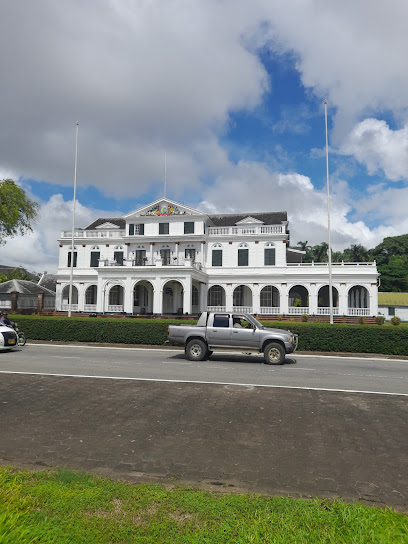
The Transportation Camp
Explore The Transportation Camp in Saint-Laurent-du-Maroni, a haunting historical landmark shedding light on the legacy of French Guiana's penal colony.
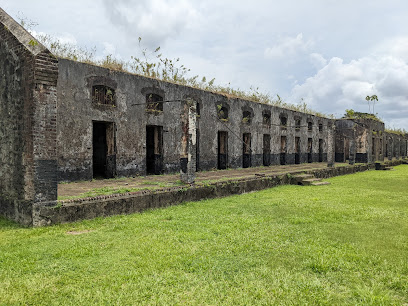
Fort Zeelandia
Discover the historical charm of Fort Zeelandia, a key tourist attraction in Paramaribo, Suriname, revealing the country's colonial legacy.
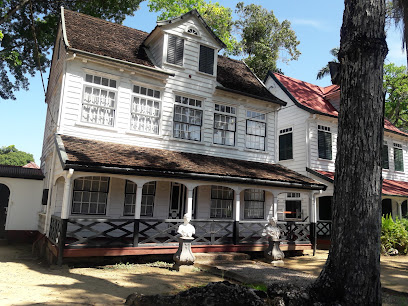
Tourist Office of Saint-Laurent du Maroni
Explore the wonders of French Guiana at the Tourist Office of Saint-Laurent du Maroni, your gateway to adventure, culture, and history.
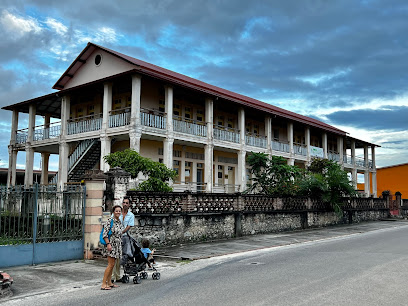
Hôtel Amazonia du Fleuve
Discover the comfort and local charm of Hôtel Amazonia du Fleuve in Saint-Laurent-du-Maroni, your gateway to the beauty of French Guiana.
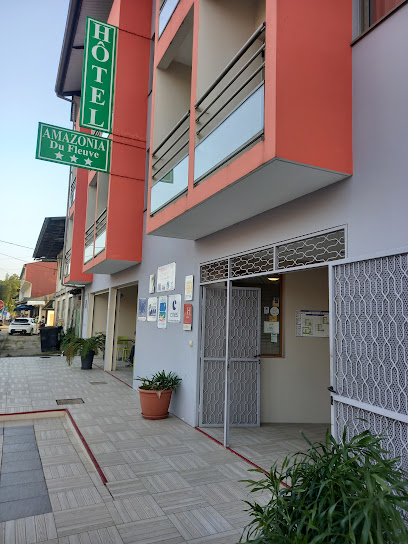
Brownsberg
Explore the breathtaking natural beauty of Brownsberg in Suriname, a serene park perfect for hiking, wildlife watching, and reconnecting with nature.
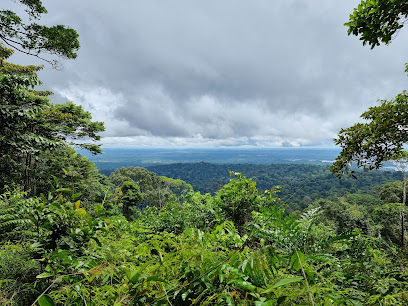
Hôtel La Tentiaire
Discover the charm of Saint-Laurent-du-Maroni at Hôtel La Tentiaire, your cozy haven in the heart of French Guiana.
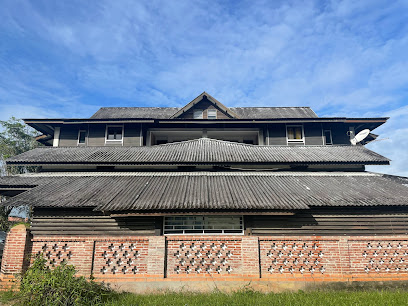
Peperpot Nature Park
Immerse yourself in the lush beauty and tranquility of Peperpot Nature Park, a sanctuary of biodiversity in Suriname.
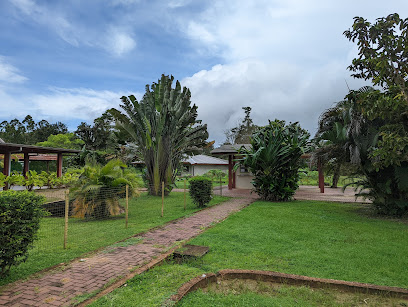
Jules Wijdenbosch Bridge
Experience the stunning views and cultural richness at Jules Wijdenbosch Bridge, a must-see landmark in Paramaribo, Suriname.
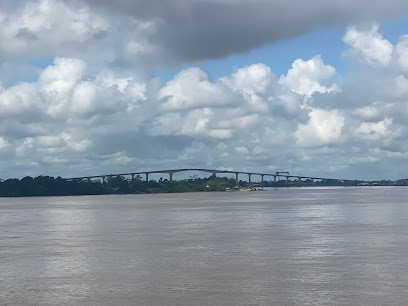
Bigi Pan
Discover the serene beauty and rich biodiversity of Bigi Pan National Park, a hidden gem in Suriname for nature lovers and adventure seekers.
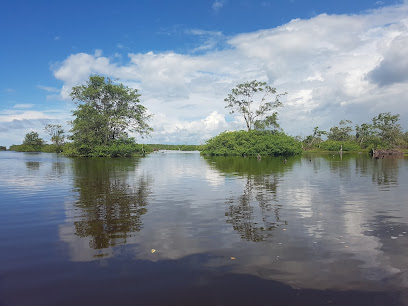
Neveh Shalom Synagogue
Explore the historic Neveh Shalom Synagogue in Paramaribo, a unique blend of Jewish heritage and architectural beauty, reflecting Suriname's multicultural history.
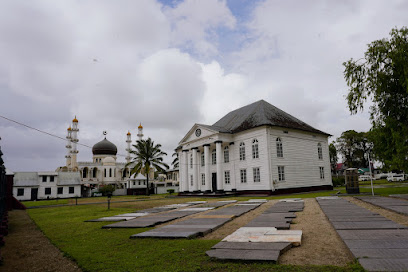
Neotropical Butterfly Park
Explore the vibrant Neotropical Butterfly Park in Suriname, a stunning garden sanctuary with over 150 butterfly species in a serene natural setting.
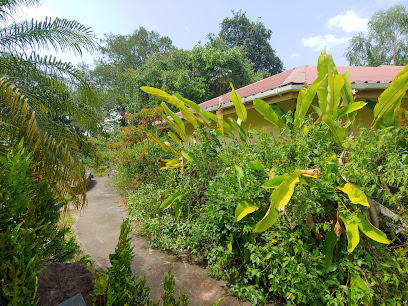
Greenheart Boutique Hotel
Discover the charm of Paramaribo at Greenheart Boutique Hotel, where comfort meets local culture in a cozy retreat.
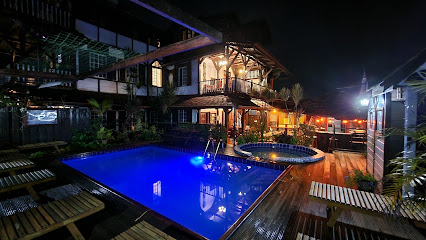
LE SAMANA
Discover the charm of French Guiana at Le Samana, a cozy hotel offering comfort and a taste of local culture in the heart of Mana.

Fort Nieuw Amsterdam
Explore Fort Nieuw Amsterdam: A Historical Fortress Unveiling Suriname's Colonial Legacy Amidst Lush Landscapes.
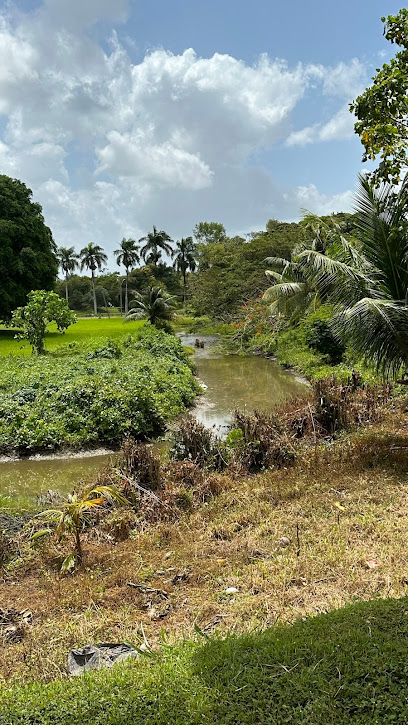
Essential places to dine
La Goëlette
Experience the essence of French cuisine at La Goëlette in Saint-Laurent-du-Maroni, where every dish tells a story of flavor and tradition.
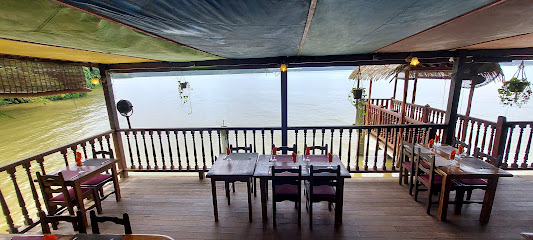
Oleh Alice
Experience authentic Surinamese cuisine at Oleh Alice in Tamanredjo – where every dish tells a story.
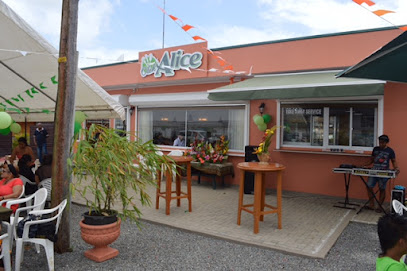
The Chill Grill Albina
Discover authentic Surinamese flavors at The Chill Grill Albina – where every bite tells a story.
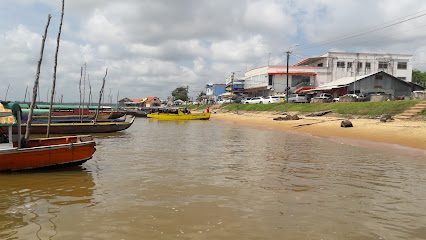
Agies Roti Place
Experience authentic Surinamese cuisine at Agies Roti Place, where every dish tells a story and flavor takes center stage.
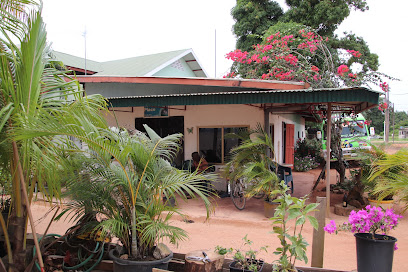
Momau Restaurant
Discover authentic Surinamese cuisine at Momau Restaurant in Albina - a culinary gem showcasing local flavors and hospitality.
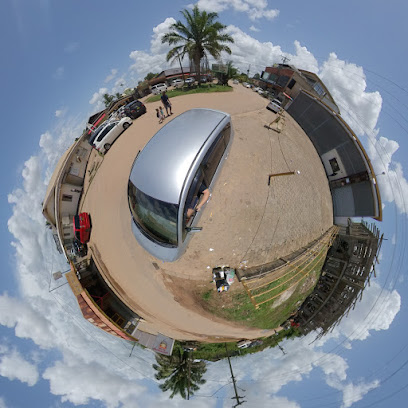
Bar das tesudas
Discover the charm of Albina at Bar das Tesudas – where vibrant culture meets refreshing drinks in a cozy atmosphere.

R-NESTY BBQ MEAT
Discover the vibrant flavors of Suriname at R-NESTY BBQ MEAT, where authentic barbecue meets warm hospitality in Meerzorg.
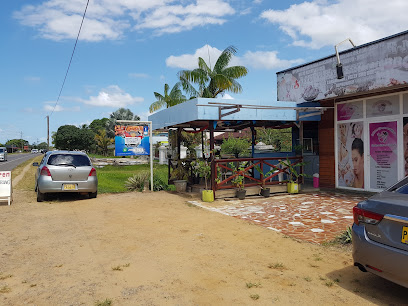
Sensual moon light
Discover culinary delights under the enchanting moonlight at Sensual Moonlight restaurant in Albina, Suriname - a perfect blend of flavor and ambiance.

Wang's Fried Chicken
Discover the irresistible taste of crispy fried chicken at Wang's Fried Chicken in Albina, Suriname – a local favorite among food lovers.
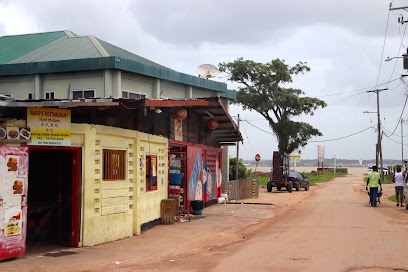
Markets, malls and hidden boutiques
Hermitage Mall
Discover Hermitage Mall in Paramaribo: a vibrant shopping destination with diverse stores, delightful dining, and family-friendly entertainment.
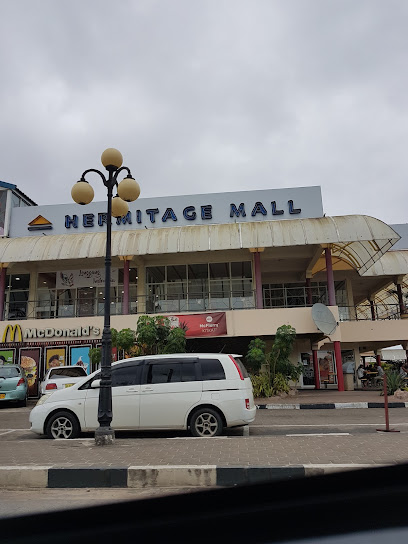
Dojo Couture
Explore the vibrant styles at Dojo Couture, a must-visit clothing store in Paramaribo, Suriname, for fashion enthusiasts and cultural seekers alike.
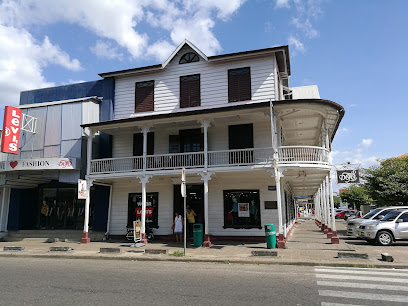
Albina
Explore Albina, Suriname: A charming ferry terminal town offering scenic river views and a gateway to adventure in the Amazonian wilderness.
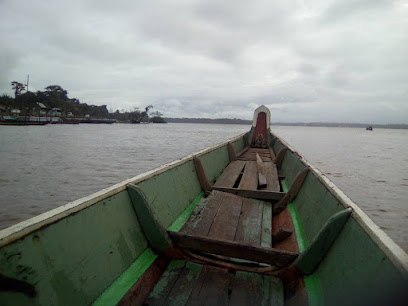
BETTER BOUWCENTER
Explore a wide range of home goods at Better Bouwcenter in Albina, Suriname, where quality meets cultural charm in your shopping experience.
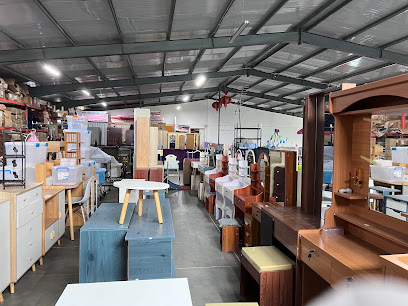
Janelle's Shoes 'N Bags
Discover unique shoes and bags at Janelle's Shoes 'N Bags in Paramaribo - a haven for fashion lovers seeking quality and style.
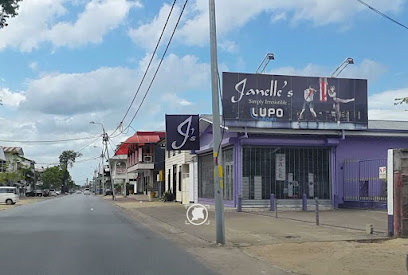
langa tabikie
Explore Langa Tabikie in Badatabiki: a vibrant supermarket showcasing local and international flavors.
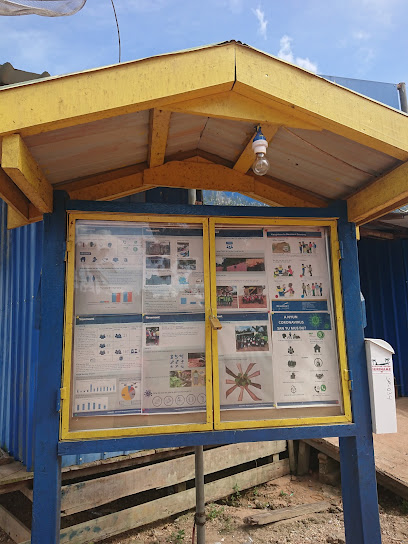
Cute as a Button
Discover the enchanting world of baby products at Cute as a Button, the premier baby store in Paramaribo, Suriname, offering unique gifts and essentials.
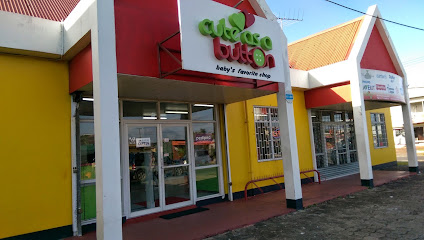
Yamaha Trade Center Albina
Explore cutting-edge electronics and essential gadgets at Yamaha Trade Center Albina, your go-to destination in Suriname.
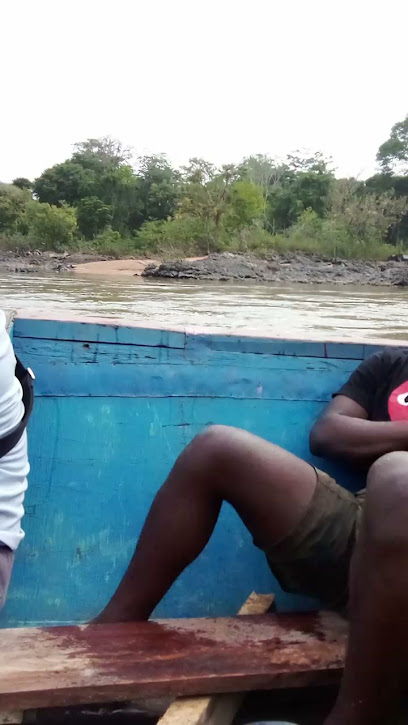
Albina Zinkplaten Fabriek
Explore the charming Albina Zinkplaten Fabriek, a home goods store showcasing local crafts and unique household items in the heart of Suriname.
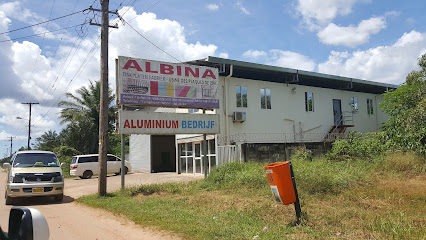
Super shopping
Explore Super Shopping in Albina, Suriname - a vibrant mall offering diverse shops and delicious dining, perfect for unique souvenirs and local experiences.
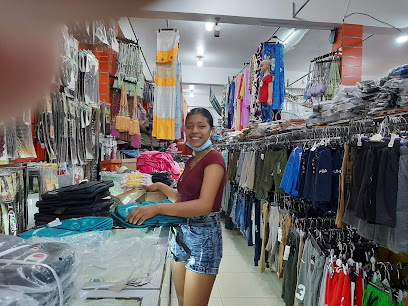
Shalom Service Center
Explore Albina's waterways with Shalom Service Center, your trusted outboard motor store for all aquatic adventures in Suriname.
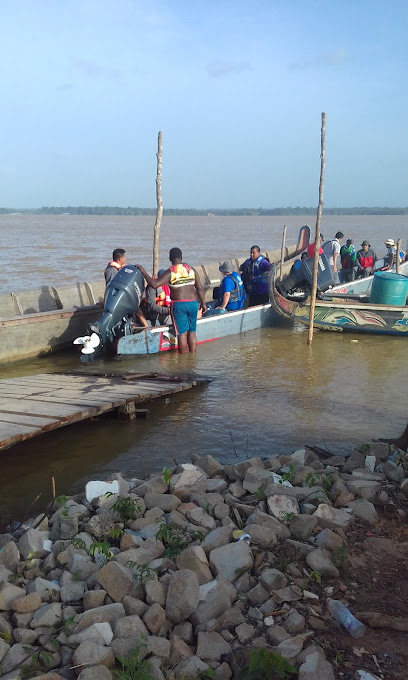
All Vision
Experience exceptional eye care and stylish eyewear at All Vision in Albina, Suriname, where your vision is our priority.

TianTian Supermarket
Explore local flavors and international favorites at TianTian Supermarket in Albina, a food lover's paradise that captures the essence of Surinamese culture.

Kings Duty Free Shop
Explore Kings Duty Free Shop in Albina for unbeatable tax-free shopping on luxury goods and local treasures.

xin long
Explore the unique offerings of Xin Long in Albina, Suriname, where local culture meets an authentic shopping experience.

Essential bars & hidden hideouts
D'Bar
Experience the vibrant nightlife and local culture at D'Bar, the top bar in Paramaribo, Suriname, with refreshing drinks and lively music.
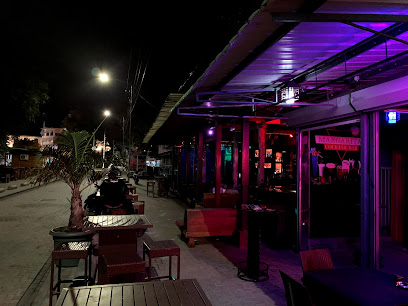
Albina
Discover Albina, Suriname: A charming ferry terminal and gateway to cultural exploration and natural beauty.
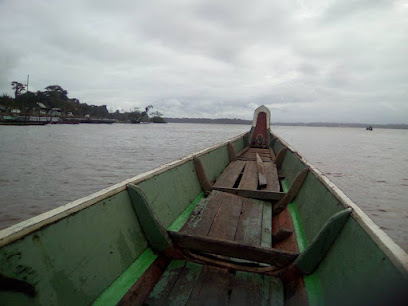
Bar das tesudas
Experience the vibrant local culture at Bar das Tesudas in Albina, where friendly faces and refreshing drinks await every traveler.

Local Phrases
-
- HelloHallo
[HAH-loh] - GoodbyeAyo
[AH-yoh] - YesJa
[YAH] - NoNeen
[NEEN] - Please/You're welcomeMi abi begi/No biggie
[MEE AH-bee BEH-ghee/NOH BIG-gee] - Thank youDanki
[DAN-kee] - Excuse me/SorrySori
[SOH-ree] - How are you?Fa yu de?
[FAH yoo deh?] - Fine. And you?Bueno. A yu?
[BWEH-noh. AH yoo?] - Do you speak English?Yu e taki Inglish?
[YOO eh TAH-kee ING-lish?] - I don't understandMi no sabi
[MEE noh SAH-bee]
- HelloHallo
-
- I'd like to see the menu, pleaseMi wani si a menyoo, mi begi
[MEE WAH-nee see ah meh-nyoo, MEE BEH-ghee] - I don't eat meatMi no e nyan karni
[MEE noh eh NYAHN KAHR-nee] - Cheers!Proost!
[PROHST!] - I would like to pay, pleaseMi wani pai, mi begi
[MEE WAH-nee pie, MEE BEH-ghee]
- I'd like to see the menu, pleaseMi wani si a menyoo, mi begi
-
- Help!Yeps!
[YEPS!] - Go away!Go feti!
[GOH FEH-tee!] - Call the Police!Bel polis!
[BEHL poh-LEES!] - Call a doctor!Bel wan doktor!
[BEHL wahn DOHK-tor!] - I'm lostMi dede
[MEE DEH-deh] - I'm illMi e siki
[MEE eh SEE-kee]
- Help!Yeps!
-
- I'd like to buy...Mi wani bai...
[MEE WAH-nee BYE...] - I'm just lookingMi de kibri
[MEE deh KEE-bree] - How much is it?Fa prijs fu en?
[FAH price foh ehn?] - That's too expensiveDat e te dyari
[DAHT eh teh DYAH-ree] - Can you lower the price?Yu man meki a pris leri?
[YOO mahn MEH-kee ah prees LEH-ree?]
- I'd like to buy...Mi wani bai...
-
- What time is it?Fa ten de?
[FAH tehn deh?] - It's one o'clockEn de wan
[EHN deh wahn] - Half past (10)Dei pasi (10)
[DEH-ee PAH-see (tien)] - MorningMorgu
[MOHR-goo] - AfternoonMiddagu
[MEED-dah-goo] - EveningNeti
[NEH-tee] - YesterdayGisteri
[GHEES-teh-ree] - TodayTidei
[TEE-deh] - TomorrowMorgen
[MOHR-ghen] - 1Wan
[WAHN] - 2Tu
[TOO] - 3Dri
[DREE] - 4Fowru
[FOH-roo] - 5Fayfu
[FAY-foo] - 6Sisi
[SEE-see] - 7Sebi
[SEH-bee] - 8Ato
[AH-toh] - 9Nau
[NOW] - 10Tien
[TEEN]
- What time is it?Fa ten de?
-
- Where's a/the...?Fa a...?
[FAH ah...?] - What's the address?Fa a adres?
[FAH ah ah-DREHS?] - Can you show me (on the map)?Yu man sori mi?
[YOO mahn SOH-ree mee?] - When's the next (bus)?Fa taigri bus?
[FAH TAH-gree bus?] - A ticket (to ....)Wan tiketi (te ...)
[WAHN tee-keh-tee (teh ...)]
- Where's a/the...?Fa a...?
History of Albina
-
Albina was founded in 1846 by August Kappler, a German explorer and colonialist. Initially established as a trading post, Albina quickly became a strategic location due to its position on the west bank of the Marowijne River, which serves as a natural border between Suriname and French Guiana.
-
During the late 19th and early 20th centuries, Albina flourished as a key trading hub. Its economy was primarily driven by the export of timber, rubber, and other natural resources. The town attracted a diverse population, including indigenous peoples, African descendants, and immigrants from Europe and Asia, contributing to its rich cultural tapestry.
-
World War II marked a significant period in Albina's history. The discovery of bauxite, essential for aluminum production, led to the establishment of mining operations in the region. The town's strategic location made it a vital point for the Allied forces, who utilized its resources for aircraft manufacturing. This period brought economic prosperity and infrastructural development to Albina.
-
Suriname gained its independence from the Netherlands on November 25, 1975. The subsequent years were marked by political instability and civil unrest. Albina, being close to the border, was significantly affected during the Surinamese Interior War (1986-1992). The conflict between the Surinamese government and the Jungle Commando, led by rebel leader Ronnie Brunswijk, disrupted life in Albina, causing many residents to flee and seek refuge in French Guiana.
-
Following the end of the civil war, Albina began a slow process of reconstruction. Efforts were made to restore infrastructure and revive the local economy. Today, Albina is a gateway for eco-tourism and cross-border trade. The town boasts a mix of traditional and modern influences, with vibrant markets, cultural festivals, and natural attractions such as the Marowijne River and nearby rainforests.
-
Albina's cultural heritage is a reflection of its diverse population. The town is home to Maroon communities, descendants of escaped African slaves who established independent settlements in the interior of Suriname. Their rich traditions, music, and dance, particularly the energetic Awasa and Seketi dances, are integral to Albina's cultural identity. Additionally, the influence of indigenous Carib and Arawak peoples is evident in local crafts, cuisine, and communal practices.
-
Albina hosts several annual events that celebrate its unique heritage. The Marowijne Cultural Festival is a vibrant showcase of local art, music, and dance, attracting visitors from across the region. The town also observes national holidays like Keti Koti, commemorating the abolition of slavery, and Independence Day, with parades, performances, and communal feasts.
-
The Marowijne River has always played a crucial role in Albina's history and development. It serves as a vital transportation route, linking Albina to the interior and neighboring French Guiana. The river is also central to the daily lives of many residents, providing water for agriculture, fishing, and other activities. Its scenic beauty and biodiversity make it a popular attraction for eco-tourists and nature enthusiasts.
Albina Essentials
-
Albina is located on the eastern border of Suriname, adjacent to the Marowijne River which separates it from French Guiana. The nearest international airport is Johan Adolf Pengel International Airport in Zanderij, about 150 km from Albina. From the airport, you can take a taxi or arrange for a private transfer to Paramaribo, the capital of Suriname. From Paramaribo, minibuses and shared taxis regularly travel to Albina, with the journey taking approximately 3 to 4 hours.
-
In Albina, transportation options are relatively limited. Walking is a viable option for exploring the town itself. For trips to nearby areas, you can use local taxis or arrange for private car rentals. There are also boat services that can take you across the Marowijne River to French Guiana. Public minibuses are available but can be irregular; it's advisable to confirm schedules in advance.
-
The official currency in Suriname is the Surinamese Dollar (SRD). While some hotels and restaurants in Albina may accept credit cards, cash is generally preferred. It's advisable to carry sufficient cash, as ATMs may not always be available or functional. It's recommended to obtain Surinamese Dollars before arriving in Albina, either from banks or exchange bureaus in Paramaribo.
-
Albina is generally safe but, like any travel destination, caution is advised. Be aware of your surroundings and avoid walking alone at night, especially in poorly lit areas. Petty crime, such as pickpocketing, can occur, so keep an eye on your belongings. Specific areas to be cautious in include the border areas where illegal activities may occur. It’s always wise to seek local advice on safer routes and neighborhoods.
-
In case of emergency, dial 115 for police, 110 for medical emergencies, and 111 for the fire department. Albina has a local police station and a small medical clinic for basic health issues. For serious medical emergencies, it is advisable to travel to Paramaribo where better-equipped hospitals are located. Carry a basic first-aid kit and ensure your travel insurance covers medical emergencies.
-
Fashion: Do dress modestly and comfortably due to the tropical climate. Wear lightweight and breathable fabrics. Religion: Do respect religious practices and local customs. When visiting religious sites, dress conservatively. Public Transport: Do be patient, as public transport schedules can be irregular. Avoid eating or drinking on public transport. Greetings: Do greet locals with a handshake or a nod. A friendly 'good morning' (goedemorgen) or 'good afternoon' (goedemiddag) is appreciated. Eating & Drinking: Do try local dishes and accept food offerings graciously. Don't refuse hospitality, as it can be considered impolite.
-
To experience Albina like a local, visit the local markets where you can buy fresh produce and traditional Surinamese goods. Engage with the friendly locals who are often willing to share stories about the area's history and culture. Don't miss taking a boat trip on the Marowijne River to experience the natural beauty and spot wildlife. Visiting the nearby Galibi Nature Reserve to see nesting sea turtles is also highly recommended.
Trending Landmark in Albina
-
Palmtree Garden
-
The Transportation Camp
-
Fort Zeelandia
-
Tourist Office of Saint-Laurent du Maroni
-
Hôtel Amazonia du Fleuve
-
Brownsberg
-
Hôtel La Tentiaire
-
Peperpot Nature Park
-
Jules Wijdenbosch Bridge
-
Bigi Pan
-
Neveh Shalom Synagogue
-
Neotropical Butterfly Park
-
Greenheart Boutique Hotel
-
LE SAMANA
-
Fort Nieuw Amsterdam
Nearby Cities to Albina
-
Things To Do in Moengo
-
Things To Do in Mariënburg
-
Things To Do in Brokopondo
-
Things To Do in Lelydorp
-
Things To Do in Paramaribo
-
Things To Do in Skeldon
-
Things To Do in New Amsterdam
-
Things To Do in Kwakwani
-
Things To Do in Ituni
-
Things To Do in Linden
-
Things To Do in Bartica
-
Things To Do in Anna Regina
-
Things To Do in Lethem
-
Things To Do in Kamarang
-
Things To Do in Sangre Grande






